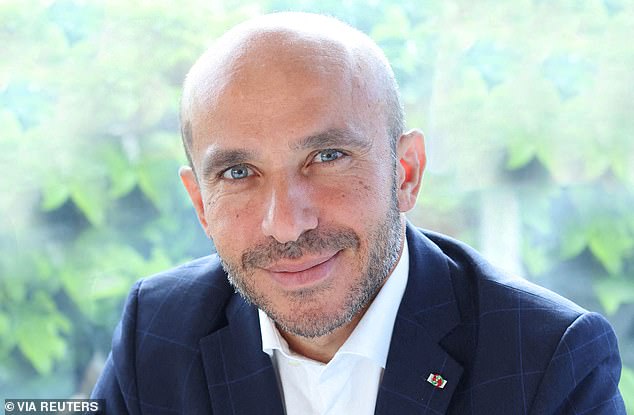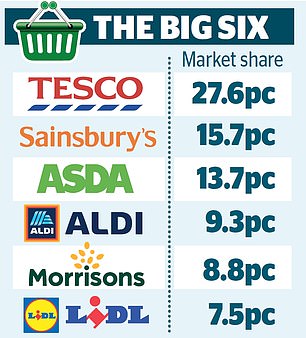The new boss of Morrisons has vowed to win back shoppers from Aldi after the floundering grocer’s private equity takeover.
Morrisons has lost customers to the discounter, and conceded its status as Britain’s fourth-biggest grocer to Aldi two years ago.
But Rami Baitieh said yesterday he would ‘start a new chapter’. In his first financial update since taking the reins in November, he said he was confident of a ‘bright future’.
Grocery sales rose 2.7 per cent to £14.9billion over the year to October 29.
On tempting customers away from Aldi and back to Morrisons, he said: ‘I am sure they will come back’, but admitted there was ‘work to do’.

Upbeat: Two years after Morrisons conceded its status as Britain’s fourth-biggest grocer to Aldi, new Morrisons boss Rami Baitieh (pictured) said he was confident of a ‘bright future’
Baitieh added: ‘Since the pandemic, Morrisons has not been on peak form.
‘Our market share has slipped, slowly but consistently, our like-for- likes – although on an improving and encouraging trend now – have been below the pack for a while, and the switching data has not been encouraging.
‘So although we have many structural, operational and cultural strengths, we must not be satisfied with our recent performance.’
Industry data this week showed that Morrisons’ market share was sliding further.
It held 8.8 per cent of the market over the three months to January 21, down from 9.1 per cent a year earlier, according to Kantar market researchers.
Meanwhile, Aldi took 9.3 per cent compared to 9.2 per cent the year before, while Lidl took 7.5 per cent, up from 7.1 per cent.

Tesco and Sainsbury’s also emerged as Christmas winners.
Although Morrisons did not disclose how it fared over the festive season, Baitieh said: ‘We have been doing better and better every quarter.’
He said changes he would implement include ‘becoming more organised and more forensic’ over feedback and complaints, and major meetings would be attended by a customer panel.
Morrisons this week said it was selling its 337 petrol forecourts to private equity stablemate Motor Fuel Group for £2.5billion to fund investment in its grocery and food-making business, and strengthen finances.
Chairman Sir Terry Leahy said about £2billion would be invested in the super- market group, which has a £5.5billion debt pile.



